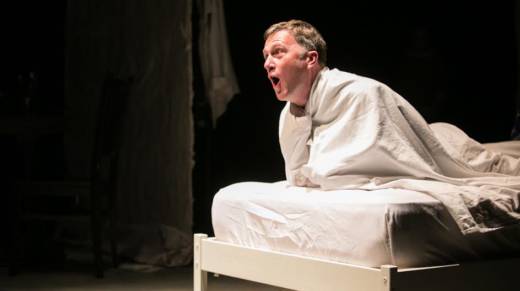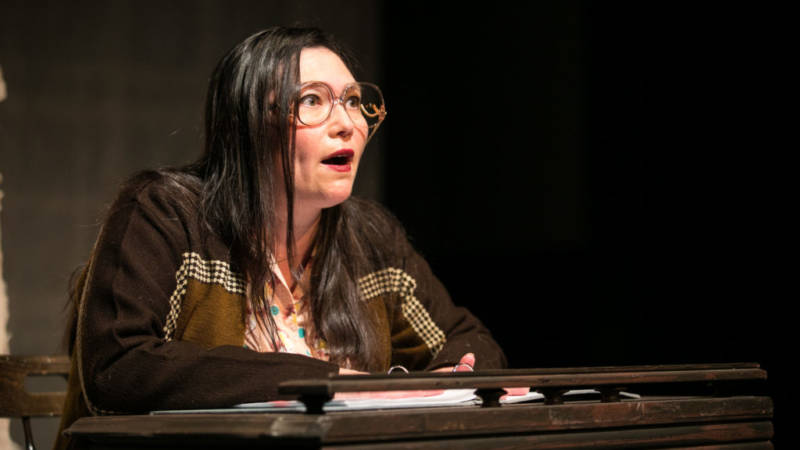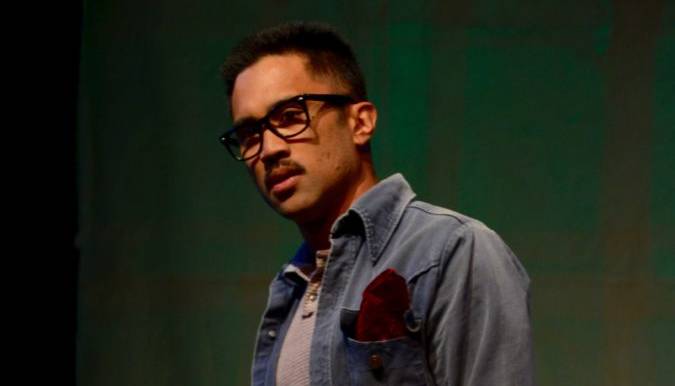How could you have let that happen? How could you have watched? Why didn’t you intervene?
These days, when complicity has become such a potent, possibly criminal question (in our government, businesses, and private lives), TheatreFirst’s two-program collection of seven one-act monologues, Between Us, presents a group of men and women who got in the way. After witnessing the hardships they endure — psychological, familial, economic, and social — it’s hard to blame anyone who turns a blind eye and goes on their way.
It’s a fascinating experiment in social justice activism and art, made more so by the variety of people testifying. Two of the seven are everywoman composites, while the other five are or concern real people — renowned 19th century Voodoo priestess Marie Laveau; Philippine labor organizer Larry Itliong; a Uruguayan literature student Nibia Sabalsagaray; Aiko Herziog-Yoshinaga, an activist who uncovered crucial documents on the Japanese internment; and Major General Smedley Butler, who stymied a plot by American business interests to overthrow President Franklin Roosevelt.
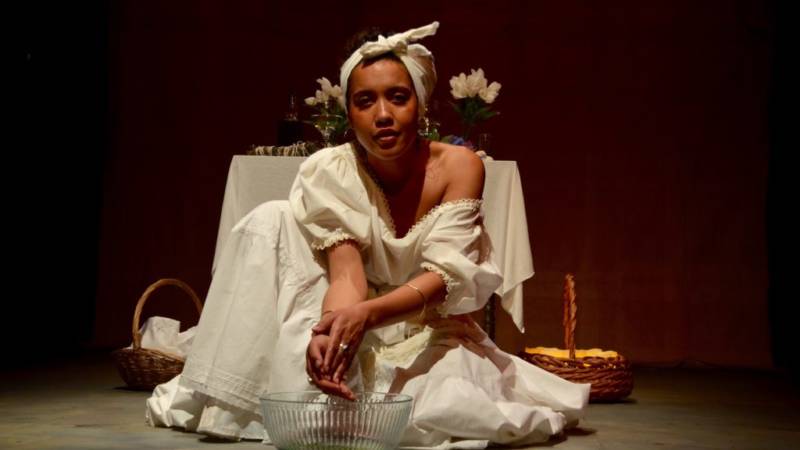
As information, both programs are terrific. You get a kind of running commentary on what it means to actually take a stand, to dedicate your life to not caving in under pressure. Unfortunately, as drama, five of the seven one-acts fail to come to theatrical life. The other two, though somewhat successful, are still shaky.
Playwrights such as Wallace Shawn (The Fever and The Designated Mourner) and Adrienne Kennedy (The Ohio St. Murders) have used the one-person lecture format to devastating ends. Yet none of the plays of Between Us have either the formal sophistication or the political and social vision necessary to testify against the world. Noelle Viñas’ La Profesora and Jeanne Sakata’s Turning the Page are prime examples of how difficult it is to dramatize what is essentially information.
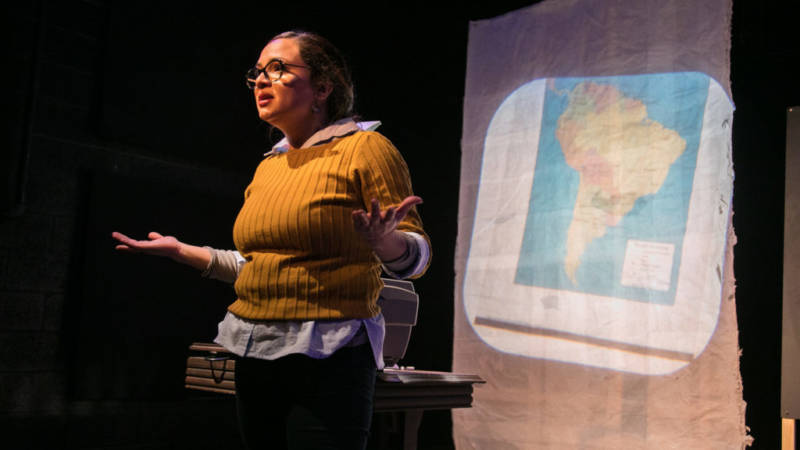
In La Profesora, Tachi, a young teacher, is fired for a lesson she gives to her class on the Uruguayan government’s summary execution of a university student. As a fact, U.S.-backed 1970s South American death squads are a depressing commonplace. It’s hard to imagine in 2018 someone hired to bring a “South American perspective in a Literature of Human Rights class” and then fired for talking about such things.
